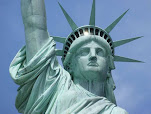By Tom Mosoba
Tanzania has slipped 24 places in the global corruption ranking over the last one year, reflecting the country?s faltering effort in the campaign against the vice.
The country dropped from position 102 in 2008, to 126 in the 2009 Global Corruption Perception Index (CPI), whose results were released yesterday by the Berlin- based anti-graft agency, Transparency International (TI).
According to the findings of the respected anti-corruption watchdog, Tanzania posted its first worst performance in recent years in the annual ranking of the 180 countries surveyed worldwide.
However, with the exception of Rwanda, Tanzania did better in the region, ranking higher than Kenya (146) and Uganda (130) in the global index. Kenya improved by one position, while Uganda dropped four places.
Rwanda, which was ranked the same with Tanzania in 2008, is now considered the least corrupt country in the East Africa, coming in at an impressive 89th place.
The country led by reformist President Paul Kagame, who has won world accolades for a wide range steps to improve governance, went up by 14 positions to break into the top 100, with a CPI score of 3.7 points. Burundi, the worst performer in the region, was ranked 168th.
Tanzania?s best ranking was 94, in 2007, when Parliament finally passed a law, establishing the Prevention and Combating of Corruption Bureau (PCCB). In 2006, the country was ranked 101.
With this year?s decline, the average CPI score and confidence rating of the country?s anti-corruption efforts dropped from 3.2 points in 2007 to 2.6 points this year, out of a maximum of 10 points, in what points to a setback in efforts to fight graft in high places.
President Jakaya Kikwete recently conceded that corruption in the public sector gobbles up more than 30 per cent of the funds allocated for community development.
The poor 2009 CPI ranking comes at a time when the authorities are coming under criticism from the public and donors for not doing enough to root out and punish the masterminds of grand corruption in government, public and private sectors.
The TI findings reflect public disenchantment with the levels of public sector corruption in the respective countries. It is derived from data published in the past two years from surveys involving experts and business leaders in those countries as well as reports by international agencies.
Over the past two years, the government has been on the spot over the handling of the recommendations of the Parliamentary Select Committee on the $172 million Richmond emergency power supply scandal that has sparked a bitter row between Parliament and the Executive.
On a positive note, the government has since moved to prosecute some suspects in the Sh133 billion External Payment Arrears Account (EPA) scandal. Some 20 companies fraudulently received the money from the Bank of Tanzania (BoT).
Among the high profile personalities in court are former Cabinet ministers Basil Mramba and Daniel Yona, who have denied abuse of office charges involving a foreign gold auditing firm that cost the taxpayer over Sh10 billion. Several former BoT employees are also charged with causing the government a loss of over Sh300 billion in different scandals.
Yesterday, the TI chair Huguette Labelle said at the release of the report that unchecked corruption would hinder recovery efforts by governments fighting to shake off effects of the global economic crisis through massive stimulus packages or fast-track disbursements of public funds.
''Stemming corruption requires strong oversight by parliaments, a well performing judiciary, independent and properly resourced audit and anti-corruption agencies, vigorous law enforcement, transparency in public budgets, revenue and aid flows, as well as space for independent media and a vibrant civil society,'' the official said.
While some countries in the sub-Saharan region appeared to improve their scores or ranking in comparison with others, the changes did not reflect substantial and sustainable improvements in local accountability, TI added.
''The overall picture remains one of serious corruption challenges across the region,'' he said, adding that resource-rich countries such as Angola, Democratic Republic of Congo, Guinea, Chad and Sudan scored poorly despite their potential for generating huge revenues that could increase social development.
In Kenya, Guinea, Zimbabwe and Niger, political leaders were accused of failing to address the vicious cycle that links corruption to poverty. The countries were also accused of threatening local anti-corruption activists and whistleblowers on corruption.
In the 2009 ranking, fragile, unstable states that are scarred by war and ongoing conflict linger at the bottom of the index with just 1 percentage points. They include Somalia, Afghanistan, Myanmar, Sudan and Iraq.
Highest scorers in the CPI with over nine percentage points are New Zealand, Denmark, Singapore, Sweden and Switzerland. These scores reflect political stability, long-established conflict of interest regulations and solid, functioning public institutions.
Source:thecitizen.co.tz/
Subscribe to:
Post Comments (Atom)


No comments:
Post a Comment